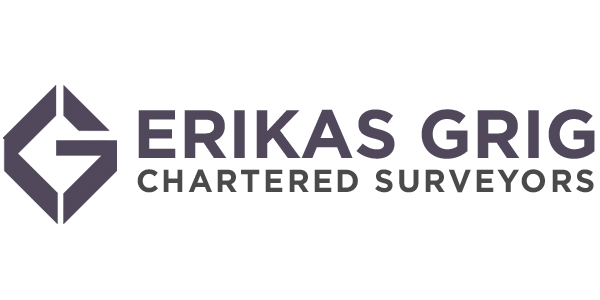RICS Home Surveys
RICS Home Surveys by Expert Chartered Surveyors Firm
“RICS Home Surveys empower our clients to navigate potential pitfalls, ensuring a comprehensive understanding of property condition. Armed with survey insights, our clients, on average, negotiate a £5,000 reduction in sale price.”
Different Levels of RICS Home Surveys
Choosing the right survey is essential, and our offered Home Surveys come in 3 distinct levels:
Level 1: Condition Report
Ideal for Traditional Homes in Good Condition
This entry-level survey is designed for conventional properties in good condition. It outlines the property’s condition, identifies risks and highlights any urgent defects. If you’re eyeing a standard house, flat, or bungalow built from common materials, this report provides essential insights.
Level 2: Home Survey
Comprehensive Analysis for Traditional Construction Homes
Our Level 2 Home Survey also previously known as RICS Homebuyers Survey is your go-to option if your property is newly built, is of traditional construction and is in reasonable condition. It includes advice on defects that may affect the property and what maintenance or repairs may be required. Our Level 2 Home Survey is available in two formats:
- Survey Only: Comprehensive insights into the property, including an extended roof space and drainage chamber inspection. Ideal for those seeking detailed information while buying or selling.
- Survey and Valuation: This option includes all features of the Level 2 Home Survey along with a market valuation and insurance reinstatement figure. Perfect for a complete understanding of the property’s value.
Level 3: Building Survey
In-Depth Analysis for Complex Properties
Our Level 3 Home Survey, previously known as the RICS Building Survey, is the most comprehensive option. It’s tailored for large, older, or run-down properties, those with unusual features, or those undergoing major renovations. This survey provides an extensive, in-depth analysis of the property’s condition, offering advice on defects, repairs, and maintenance options.
What Each Home Survey Covers?
Home Survey Level 1
Home Survey Level 2
Home Survey Level 3

Frequently Asked Questions
Explore our comprehensive FAQ sections, crafted to provide clear and detailed answers to common inquiries we get about RICS Home Surveys and our company.
What to do if a home survey uncovers problems?
Consult with the surveyor to gain a deeper understanding of the issues and potential solutions. You may want to obtain quotes from qualified contractors for necessary repairs, and consider negotiating with the seller to adjust the sale price or address the issues before proceeding with the purchase. In some cases, further investigations or specialist assessments may be recommended, and it’s crucial to address these concerns before finalizing the transaction.
Are your surveyors qualified?
Yes, all our surveyors are qualified professionals regulated by the Royal Institution of Chartered Surveyors (RICS). Our team consists of experienced chartered surveyors, ensuring that you receive a reliable and expert assessment of your property.
When should you instruct a surveyor?
It is advisable to instruct a surveyor as soon as your offer has been accepted, subject to contract. We recommend initiating the inspection once your solicitors have received the draft legal documentation and you are confident that the process is advancing smoothly, it is crucial not to postpone booking the survey until the last minute.
How long does surveyor spend at the property?
The duration of our visit to a property may significantly vary. Typically, larger properties or those in suboptimal condition require more time for a thorough inspection. Some surveys may extend to an entire day, but, on average, we usually allocate ninety minutes to four hours for each property inspection
Is it possible to request the surveyor to inspect particular concerns or aspects of the property?
Certainly, you can request the surveyor to focus on specific concerns or aspects of the property during the survey.
However, certain requests may fall outside the scope of the Home Survey. If you have specific concerns it is best to discuss these before instructing us.
Will services be inspected or tested during the survey?
While we can provide insights into the age of installations and identify apparent age-related defects, it’s important to note that we lack the qualifications and sufficient expertise to conduct service testing. In instances where recent test certification is absent or we observe notable concerns, we will always recommend seeking the services of a qualified and experienced professional for installation testing.
Is it possible to arrange a meeting with the surveyor at the property?
While we appreciate the desire to meet at the property, we, unfortunately, do not conduct on-site meetings. This is because, at the time of the inspection, we are still in the process of familiarizing ourselves with the property and forming our conclusions. Our priority during the inspection is to maintain focus on identifying potential defects.
However, we understand the importance of addressing any concerns or questions you may have. Therefore, we offer a follow-up call after the report has been issued. This allows us to discuss the findings in detail, address your queries, and provide any necessary clarification.
Contact Us
Prefer to Call or Email Us?
Services We Offer
Our commitment to precision in building expertise ensures that homebuyers receive a meticulous survey on their potential property. With our dedicated team of chartered surveyors, we take pride in providing invaluable insights, guiding homebuyers towards informed decisions and secure purchases.

Erikas Grig MRICS
Director, Erikas Grig Chartered Surveyors
REVIEWS
See What Our Customers Are Saying
Our team’s passion for precision and personalized service ensures every customer feels heard and cared for, leaving them thrilled with the results.
A Quick Way To Get In Touch With Us
Ready to take the next step in obtaining a RICS Home Survey?
Click through to our contact form for quick, guaranteed assistance. At Erikas Grig Chartered Surveyors, we prioritize your needs, and our commitment to a rapid response ensures you get the support you deserve.

